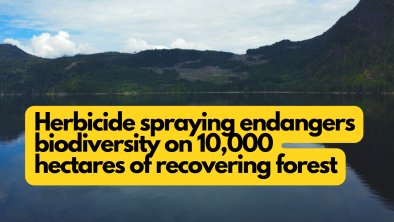Victory! European Union Bans Neonic Pesticides
Friday, April 27, 2018
Care2


Environmentalists, health care professionals and food lovers everywhere will be celebrating the European Union’s (EU) decision for an almost complete ban of neonicotinoid (called neonics) pesticides across member states in Europe. The EU had previously restricted use of three neonics from use in 2013, but today’s new ban is more extensive, now completely banning any outdoor use of neonics while continuing to allow their use in nurseries or permanent greenhouses.
Some of the products banned by the new legislation include: Bayer CropScience’s imidacloprid, Syngenta’s thiamethoxam, and Bayer CropScience and Takeda Chemical Industries’ clothianidin. Neonicotinoid pesticides are currently in widespread use in agriculture, horticulture, forestry, aquaculture, and urban and household pest control products.
Regulatory agencies in the United States, Canada and other countries have been lax on their legislation which currently allows the sale and use of these destructive products. According to the Lori Ann Burd, the director at the Center for Biological Diversity, the EPA is actually considering increasing the use of neonicotinoids on 165 million additional acres in the US. It certainly seems that the EPA’s plan is purely financially-motivated in favor of chemical corporations at the expense of wildlife and human health.
The situation isn’t much different in Canada. Currently, The David Suzuki Foundation, Friends of the Earth (Canada), Ontario Nature and The Wilderness Committee filed a lawsuit against the Canadian federal government for allowing the use of two common neonic pesticides that were banned in the EU today.
According to the David Suzuki Foundation, there is already extensive scientific evidence (over 1100 studies) of neonicotinoid-caused destruction to the environment, which includes:
- Becoming embedded into seeds that are planted
- Treated seeds are eaten by birds
- The dust from the seeds contaminates the air during planting
- Pollen and nectar eaten by bees is contaminated
- The insecticides wash into waterways like streams, rivers and oceans
- The soil is contaminated from year-after-year buildup
Let’s face it: without bees to pollinate food plants, the food supply is threatened. If we continue to use neonics, we’ll likely see food shortages, an increase in food prices and humans will also pay a serious health price for their lack of vision and foresight in the continued use of neonicotinoid pesticides. When air, water and soil are also contaminated by the toxic pesticides, it’s not surprising that the human health effects are mounting.
Currently, acute neonicotinoid exposures have been linked to human fatalities, developmental and neurological abnormalities, anencephaly, autism spectrum disorder, memory loss, liver cancer and tremors. Neonics have been found to affect receptors in the body that are critical to brain function, memory, cognition, and behavior. Additional studies have found harmful effects on reproduction and development, including: reduced sperm production and function, reduced pregnancy rates, higher rates of embryo death, stillbirth and premature birth, and reduced weight of offspring in those with higher exposures to neonics.
According to the United States Department of Agriculture (USDA) 2014 pesticide monitoring report, neonics were found in 12 of 19 fruits and vegetables tested, and 11 of these produce items contained numerous neonics. The pesticides were found on apples, cantaloupe, oranges, spinach, squashes and other common food items.
So, what can you do to reduce your exposure to neonics?
Choose organic food as much as possible.
Avoid using pesticides altogether. Some of these neonicotinoid pesticides (as compiled by Beecharmers.org) appear under the following chemical and brand names: Actara, Platinum, Helix, Cruiser, Adage, Meridian, Centric, Flagship, Poncho, Titan, Clutch, Belay, Arena, Confidor, Merit, Admire, Ledgend, Pravado, Encore, Goucho, Premise, Assail, Intruder, Adjust and Calypso.
Avoid purchasing plants sold at garden centers, nurseries and stores like Home Depot, Walmart, Lowe’s and other places where bedding plants are sold unless they are organic. Most of these plants contain poisonous neonicotinoid pesticides.
Tell the Environmental Protection Agency (EPA) that seems to have forgotten the name of the agency clearly outlines its mandate that you want neonics banned now. Tell Health Canada or other regulatory agencies in your country that you want neonics banned without exception.
Support organizations like those mentioned above that are working to ban neonics and holding government agencies accountable for their lack of environmental and human protection.
I think Jean-Marc Bonmatin, vice-chair and research scientist at France’s National Centre for Scientific Research said it best when he declared about neonics in a press statement: “There is no longer any reason to continue down this path of destruction.” There never was any reason to follow this path of destruction but, armed with well over one thousand studies, we now have the proof we need to rid the planet of neonics once and for all.


